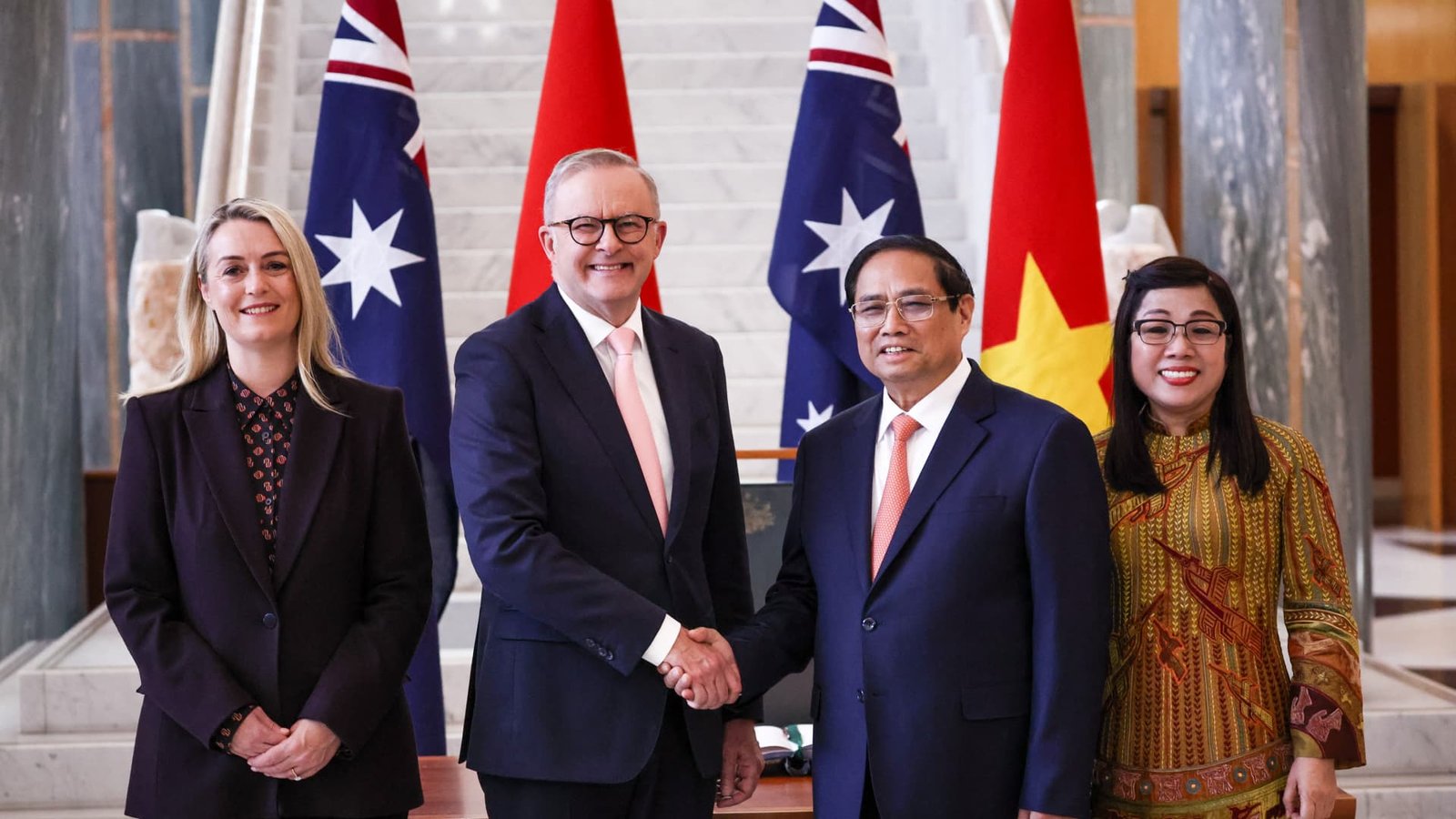Australia and Vietnam Strengthen Ties with a Comprehensive Strategic Partnership
In a move to diversify supply chains away from China, Australian Prime Minister Anthony Albanese announced the elevation of ties with Vietnam to the level of a comprehensive strategic partnership. This decision marks a significant milestone in the relationship between the two countries, as they deepen cooperation in various areas such as minerals, energy, defense, security, economic engagement, and education.
The partnership between Australia and Vietnam comes at a time when both countries are looking to strengthen their alliances in the face of evolving global dynamics. With the rise of tensions among major world powers, Vietnam has been actively engaging in what has been dubbed as “bamboo diplomacy,” a strategy aimed at expanding its diplomatic reach and influence in the international arena.
According to an official report by the Vietnam News Agency, the elevation of political trust between Australia and Vietnam has reached its highest-ever level, signifying a strong commitment to mutual cooperation and collaboration. The comprehensive strategic partnership will serve as a platform for expanded engagement on a wide range of issues, including climate change, environmental protection, energy security, defense capabilities, and economic development.
One key aspect of the partnership is the focus on minerals, particularly critical minerals that are essential for various industries, ranging from technology to automotive manufacturing. Australia, being a major producer of critical minerals, and Vietnam, with untapped deposits of these resources, have identified an opportunity to collaborate on the development of their respective mineral sectors.
As part of the strategic partnership, the two countries have agreed to establish an annual ministerial dialogue on energy and minerals to drive cooperation in the energy and resources sectors. This initiative aims to strengthen the supply chains of critical minerals and enhance the resilience of both economies in the face of changing market dynamics.
The United States has also shown interest in collaborating with Vietnam on rare earths, given the country’s significant reserves of these minerals. With China dominating the extraction and processing of rare earths, countries like Australia and the United States are looking to diversify their sources to reduce dependency on Chinese supply.
Several Australian companies have already initiated partnerships with Vietnamese counterparts to explore opportunities in the rare earths market. For instance, Blackstone Minerals Ltd. and Australian Strategic Materials have signed agreements with Vietnam Rare Earth JSC for the procurement of processed rare earths and the development of mining projects in Vietnam.
However, challenges in the rare earths sector have emerged, with issues of illegal activities and regulatory compliance affecting some of the existing partnerships. Despite these setbacks, both Australia and Vietnam remain committed to fostering a mutually beneficial relationship that will enhance their economic cooperation and strategic alignment.
In addition to minerals, Australia has been a significant supplier of coal to Vietnam, meeting the country’s energy needs for power generation. The increasing trade in coal between the two nations underscores the importance of their economic ties and the potential for further collaboration in the energy sector.
As Vietnam continues to strengthen its partnerships with key regional and global players, such as Australia, the United States, China, India, South Korea, Japan, and Russia, the country is positioned to navigate the complex geopolitical landscape and leverage diverse relationships for its economic and strategic interests.
The comprehensive strategic partnership between Australia and Vietnam signifies a new chapter in their bilateral relations, characterized by shared interests, mutual cooperation, and a commitment to enhancing their strategic alignment. By deepening their engagement in critical areas such as minerals, energy, and defense, both countries are poised to contribute to regional stability and prosperity while advancing their own national interests in a rapidly changing world.




